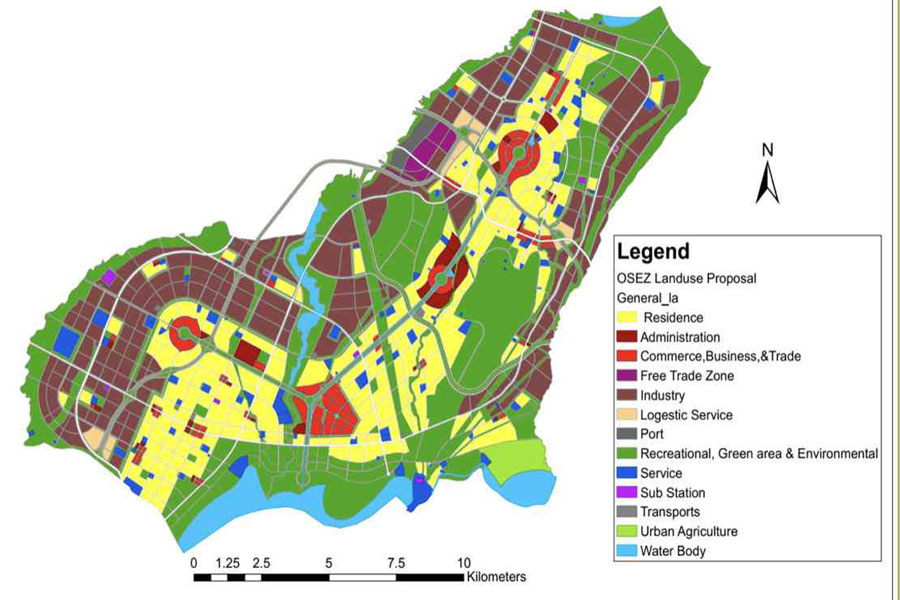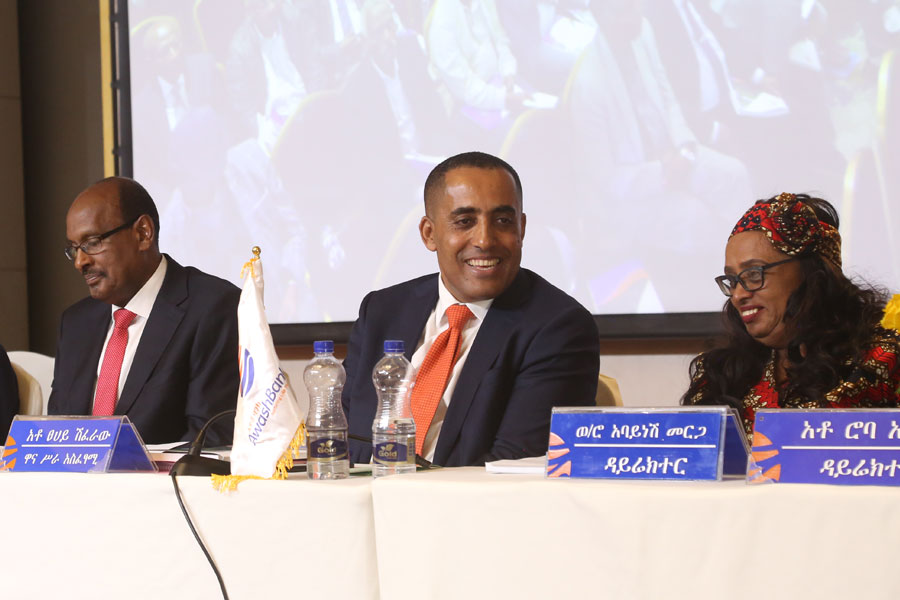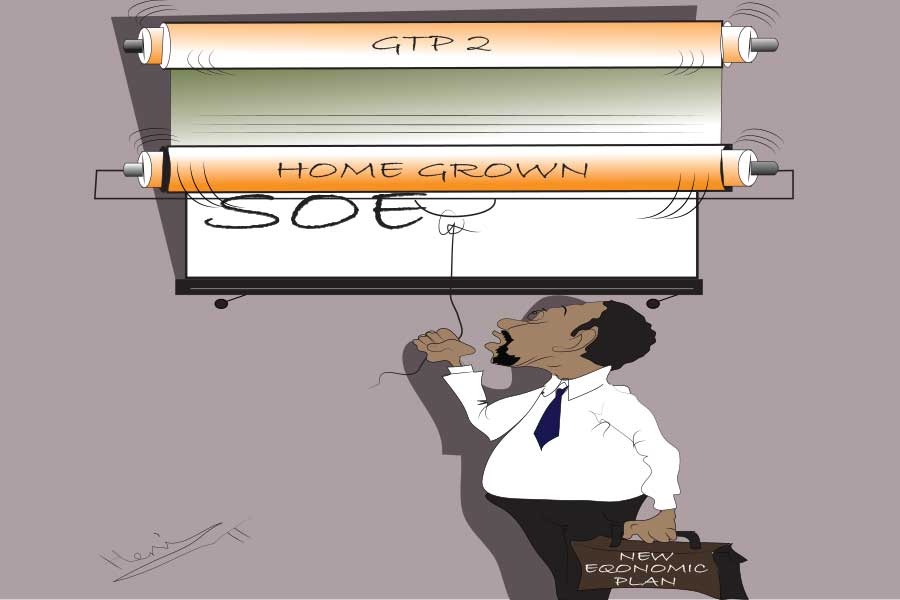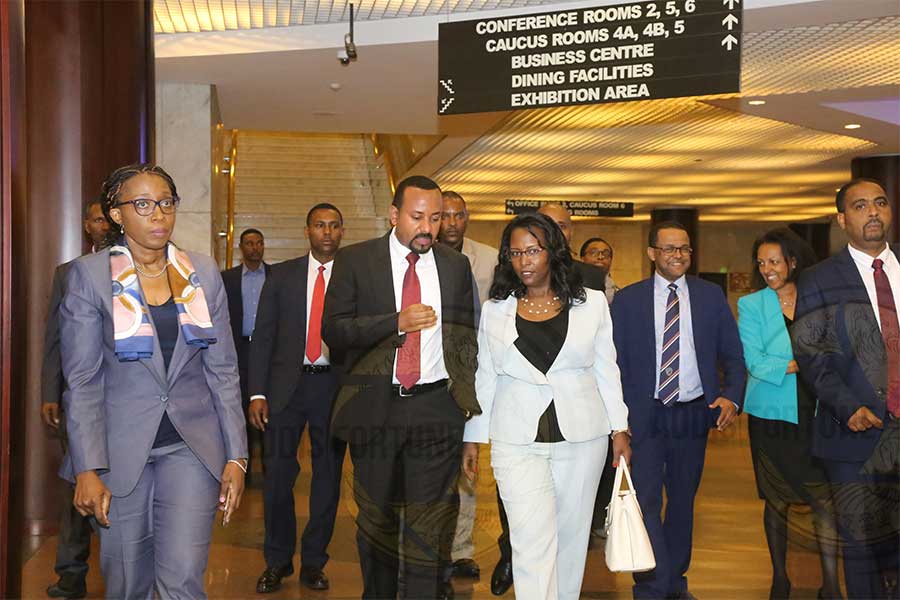
Life Matters | Aug 10,2024
After the December 1960 coup attempt led by the brothers Germame and Menigistu Neway against Emperor Haile Selassie's government, around a dozen aspiring intellectuals in their early 20s rented a house in Piassa, close to the famous 70 Dereja.The study group was called “Study on Marxism/Leninism,” and there they discussed subject matter pertaining to socialism. Newaykiristos (Neway) Gebreab, who three decades later would serve as one of the minds behind Ethiopia’s state-led economic miracle, was a member of this group.
“He wasn't one to advocate that Marxism-Leninism was the best fit for Ethiopia,” says Zafu Eyesuswork, one of the well-known personalities in the financial industry for the past two decades, who was also a member of the group with Neway.
The central question the group concerned itself with was who would replace the Emperor. The coup attempt was a stark reminder that there were burgeoning forces within the state bold enough to challenge the establishment. The foundations were, in hindsight, being laid for the student protests of the 1960s and 1970s. The Emperor was also getting old - 68 at the time of the coup. It was not too early to consider what may come next.
Neway and Zafu, who had met as third-year undergraduates at the University College of Addis Abeba when both were offered a one-year student leadership scholarship in the United States, came to the conclusion, along with their budding intellectuals in crime, that under the sociopolitical and economic context of the time, only an organised force could take control at a time when the Emperor would no longer be around.
In an unprecedented display of foresight, the group concluded that the only organised force capable of taking over was the army. Sociopolitical and economic progress thus depended on “enlightening” the army, they concluded.
Fate would have it that the group would eventually disband and each would go their separate ways, including Neway and Zafu. Both would graduate in July 1962, with Neway earning a degree in economics from what was by then being referred to as Haile Selassie University, where he had also served as secretary-general of the University’s student union.
“He was very reserved and a great listener,” reminisces Zafu, who was also roommates with Neway circa 1975, when both lived in exile.
They met up in Khartoum, where Zafu escaped to after the Derguecame to power. Neway came to visit an uncle of his who was living in the Sudanese capital. They stayed in a one-bedroom house, sleeping on floors for about two months before they would part ways once more. In the end, they both settled in Ethiopia, coming back to the country after the fall of the Dergue.
“The last time I saw him, it was at Juventus [restaurant and bar located close to Mesqel Square] about a month ago,” says Zafu. “It was very shocking to learn of his death all of a sudden.”
Neway passed away at the age of 78 last Monday at the Nordic Medical Centre after contracting pneumonia.
Neway, after graduation, worked for four years at the Development Bank of Ethiopia (DBE) as a loan officer before heading to the United Kingdom to do his postgraduate degree at the University of Manchester. He also studied economics at Oxford University. Until he returned to Ethiopia in 1991, he worked at various organs of the United Nations, including UNCTAD, the trade and development wing; UNESCO, the education and culture wing; and FAO, the nutrition and food security wing.
But his legacy was built once he returned to Ethiopia to serve as the first chief economic advisor to the President during the transition and then the Prime Minister. Both offices were occupied by the late Meles Zenawi consecutively. Until his retirement in 2017, Neway served at different times as chairperson of the National Bank of Ethiopia (NBE), director of the Ethiopian Development Research Institute and member of a steering committee and chairman of the New Partnership for Africa’s Development (NePAD).
In his role as an economic advisor to Meles, Neway is considered one of the chief architects behind Ethiopia’s development miracle of the past two decades, when the longest consecutive economic growth was registered in the country.
True to the leftist views that informed his worldview in his early 20s, he was able to help draw up a developmental state model distinct from both the Soviet Union and China.
When Neway started advising the government, gross domestic product (GDP) per capita stood at under 200 dollars. When he retired in 2017, it was close to 900 dollars. This is despite the population doubling during this period. GDP growth also averaged around 10pc annually between 2005 and his retirement in 2017.
This is while pro-poor policies aimed at improving human capital increased life expectancy by 19 years to 64 years by the mid-2010s as compared to 1990. The probability of death between the ages of 15 and 60 years was almost cut in half and the under-five mortality rate was reduced by 67pc.
The outcome was one of the most unprecedented declines in the share of a population under the poverty line. During the period Neway worked as an advisor, the number of those living under the poverty line was cut in half. Income inequality during this time, measured by the Gini coefficient, remained low and “stable” over the past two decades at around 30pc, according to the United Nations Development Program (UNDP).
“He was one of the intellectual minds behind every major economic policy of the last decades,” says Eyob Tesfaye (PhD), a macroeconomist who describes him as calm, admirable and imbued with intellectual prowess.
Working closely for about two and a half years with Neway, when he was director-general of the Public Financial Institutions Agency, Eyob credits Neway as one of the chief negotiators that made Ethiopia a beneficiary of the Heavily Indebted Poor Countries (HIPC) Initiative and one of the most important voices in resisting calls by international financial institutions to liberalise the economy further. The former led to the reduction and, in some cases, cancellation of Ethiopia’s external debt, while the latter allowed the government to retain aspects of the domestic economy that were considered crucial for development.
Ethiopia’s economy has not been without its critics. The government’s hostility toward the private sector has often been singled out by macroeconomic challenges, including foreign currency shortages, government debt, double-digit inflation and stagnant export revenue. But few observers of Ethiopia’s economy have been able to deny the developmental achievements in human capital and the inventiveness of the architects of the economy.
“I have seen him discuss issues closely with diplomats, intellectuals and government intellectuals,” says Eyob. “He commanded their respect every time.”
Neway’s intellect was admired almost as much as his reserved demeanour. He was also a great listener and preferred being concise, even insisting on receiving brief but comprehensive reports instead of long, winding explanations.
“He liked to listen, was never judgmental and hated exaggeration,” says Meaza Gebremedhin, Neway’s niece. “He also never changed his ‘Ethiopianism’. He was the reason I came back.”
Survived by his wife, Tsehaynesh Birhan, whom he married in 1997, Neway’s funeral was attended by the who’s who of Ethiopia's economic policymaking circle.
It included Girma Birru, an old hand in macroeconomic management; Teklewolde Atnafu, former governor of the central bank; and Abraham Tekeste (PhD), former Finance Minister, from the old generation. Eyob Tekalign (PhD), state minister for Finance; Yinager Dessie (PhD), central bank governor; and Ahmed Shide, minister of Finance, were in attendance from the new generation.
PUBLISHED ON
Feb 29,2020 [ VOL
20 , NO
1035]

Life Matters | Aug 10,2024

Fortune News | Dec 24,2022

Viewpoints | Aug 10,2019

Featured | Sep 11,2020

Editorial | Dec 09,2023

View From Arada | Nov 23,2019

News Analysis | Dec 09,2023

Fortune News | Jul 15,2023

Editorial | Sep 14,2019

Fortune News | Sep 14,2019

Dec 22 , 2024 . By TIZITA SHEWAFERAW
Charged with transforming colossal state-owned enterprises into modern and competitiv...

Aug 18 , 2024 . By AKSAH ITALO
Although predictable Yonas Zerihun's job in the ride-hailing service is not immune to...

Jul 28 , 2024 . By TIZITA SHEWAFERAW
Unhabitual, perhaps too many, Samuel Gebreyohannes, 38, used to occasionally enjoy a couple of beers at breakfast. However, he recently swit...

Jul 13 , 2024 . By AKSAH ITALO
Investors who rely on tractors, trucks, and field vehicles for commuting, transporting commodities, and f...

Jun 28 , 2025
Meseret Damtie, the assertive auditor general, has never been shy about naming names...

Jun 21 , 2025
A well-worn adage says, “Budget is not destiny, but it is direction.” Examining t...

Jun 14 , 2025
Yet again, the Horn of Africa is bracing for trouble. A region already frayed by wars...

Jun 7 , 2025
Few promises shine brighter in Addis Abeba than the pledge of a roof for every family...